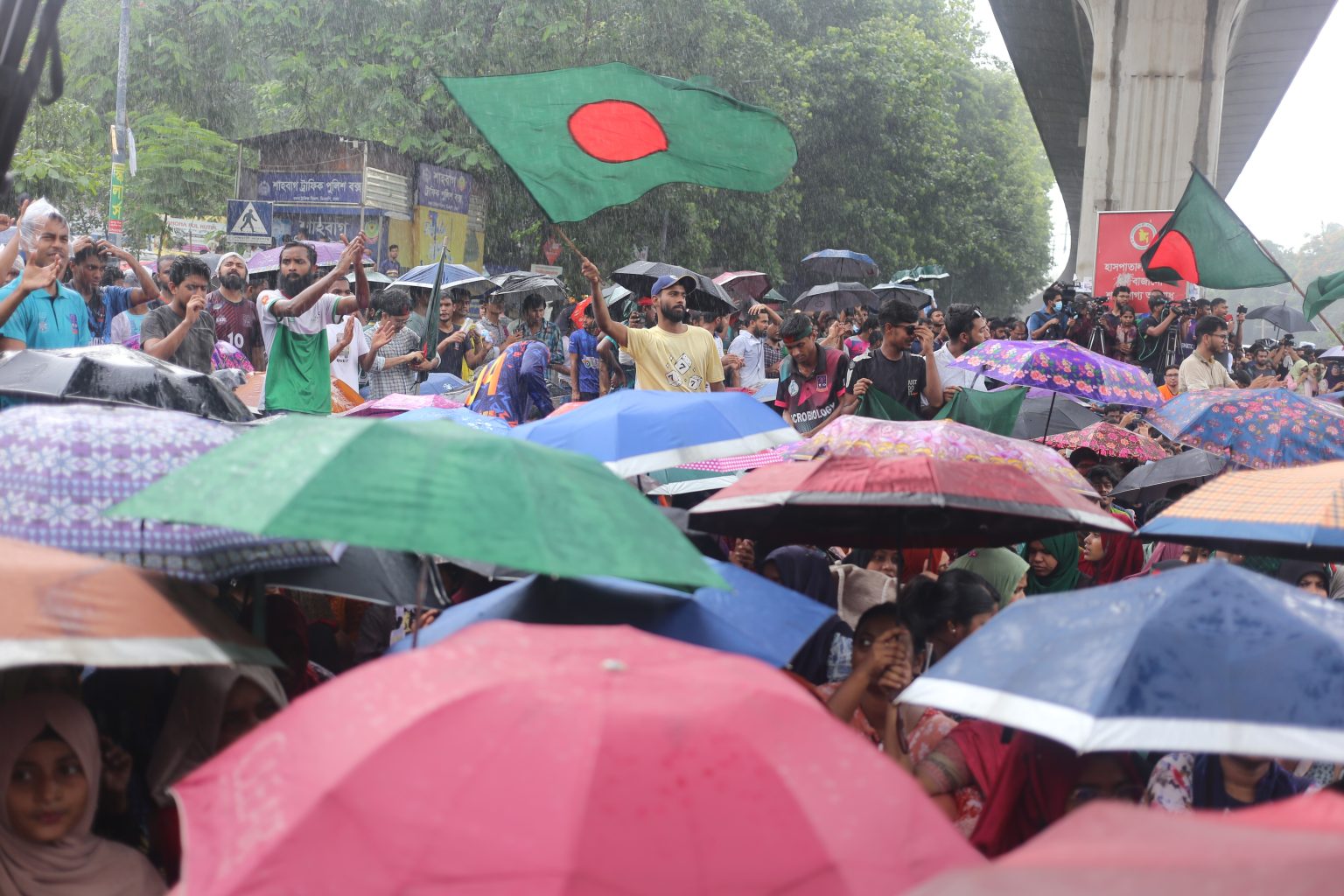On August 1, 2024—renamed “July 32” by protestors—law enforcement agencies obstructed peaceful student demonstrations during the “Remembering Our Heroes” programme organized by the anti-discrimination student movement.
The movement, rooted in calls for reforming the public service quota system, had intensified nationwide following what students termed the “July Massacre,” a period between July 16–21 marked by violent police crackdowns and the deaths of six protestors across three districts.
Despite an Appellate Division ruling on July 21 overturning the High Court’s previous decision and supporting quota reform, the verdict failed to pacify public anger. In symbolic protest, demonstrators declared they would continue counting the days of August as extensions of July until their demands were met. Accordingly, August 1 was designated “July 32.”
Throughout the country, students, teachers, lawyers, and citizens from all walks of life participated in the commemorative events. In Dhaka, students of the Public Administration Department at Dhaka University led a protest march from the Central Shaheed Minar, affirming solidarity with the anti-discrimination movement’s nine-point demands.
Earlier that day, faculty and staff of the same department staged a sit-in at the foot of the Aparajeyo Bangla sculpture, decrying state violence and demanding justice for injured and detained students and teachers.
Simultaneous observances took place across numerous institutions, including Sher-e-Bangla Agricultural University, Jahangirnagar University, Shahjalal University of Science and Technology (SUST), Barishal University, Rajshahi University, and Islamic University in Kushtia. These commemorations featured memorial meetings, graffiti, wall writings, and festoons to honour those injured, arrested, or killed in the movement.
On the evening of August 1, movement coordinator Abdul Kader announced a nationwide programme of “prayers and mass rallies” to be held the following day, August 2. The statement called on people of all faiths to offer special prayers after Jumu’ah and in respective places of worship, and to visit the graves of the fallen. The declaration also urged mass mobilization in support of their core demands and in protest against state-sanctioned violence and repression.
Earlier that day, six leading coordinators of the movement were released from the custody of the Detective Branch (DB) of Dhaka Metropolitan Police after a two-day hunger strike. Around 1:30 p.m., they were escorted home in government vehicles. Families had reportedly been summoned to the DB office earlier that morning, with no formal charges filed against the student leaders.
Internationally, protests by Bangladeshi expatriates took place in front of the United Nations Headquarters in New York. Demonstrators condemned the killings, torture, and mass arrests, urging the diaspora to suspend remittance transfers as a form of protest. In response to Prime Minister Sheikh Hasina’s appeal, UN spokesperson Stéphane Dujarric confirmed the organization’s readiness to assist Bangladesh in investigating the deaths and violence during the protests.
That same day, the Cabinet Division announced the formation of a new commission of inquiry comprising three High Court justices. The commission was tasked with investigating incidents of death, violence, sabotage, arson, terrorism, and looting that occurred between July 16 and July 21 during the protests.
From classrooms to courtrooms, village roads to foreign embassies, the youth of Bangladesh had spoken—not with bullets, but with bodies, banners, and belief. What began as a protest against an outdated quota system had evolved into a sweeping national reckoning—a revolution of conscience.
And though wounds remain, and justice is still being demanded, the uprising of July and its “extension” into August will be remembered not merely as a protest—but as a rebirth of a nation’s democratic soul. A moment when the powerless became powerful, when truth refused to kneel, and when history was written in the ink of courage and sacrifice.


